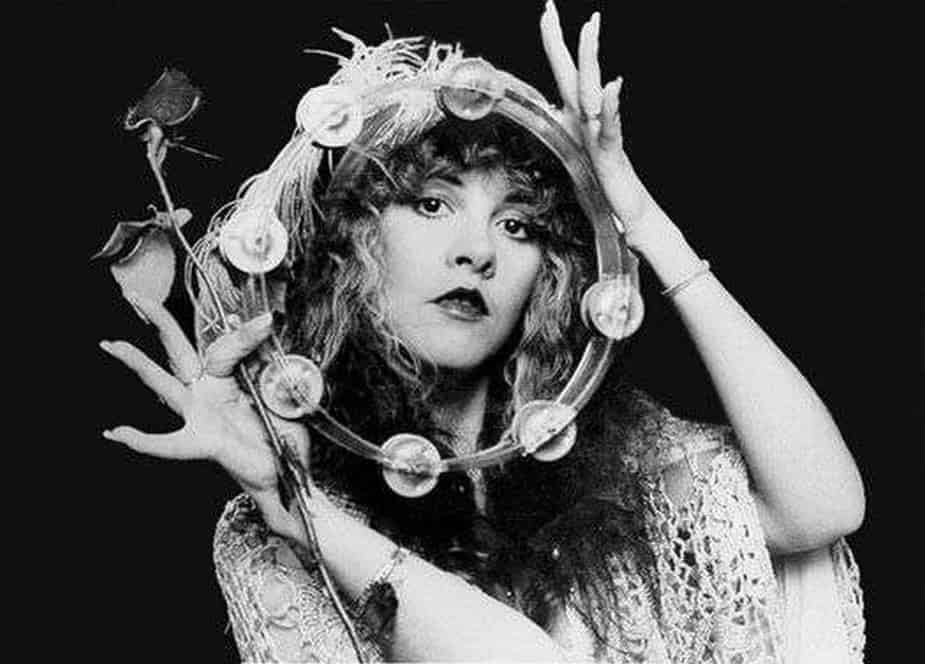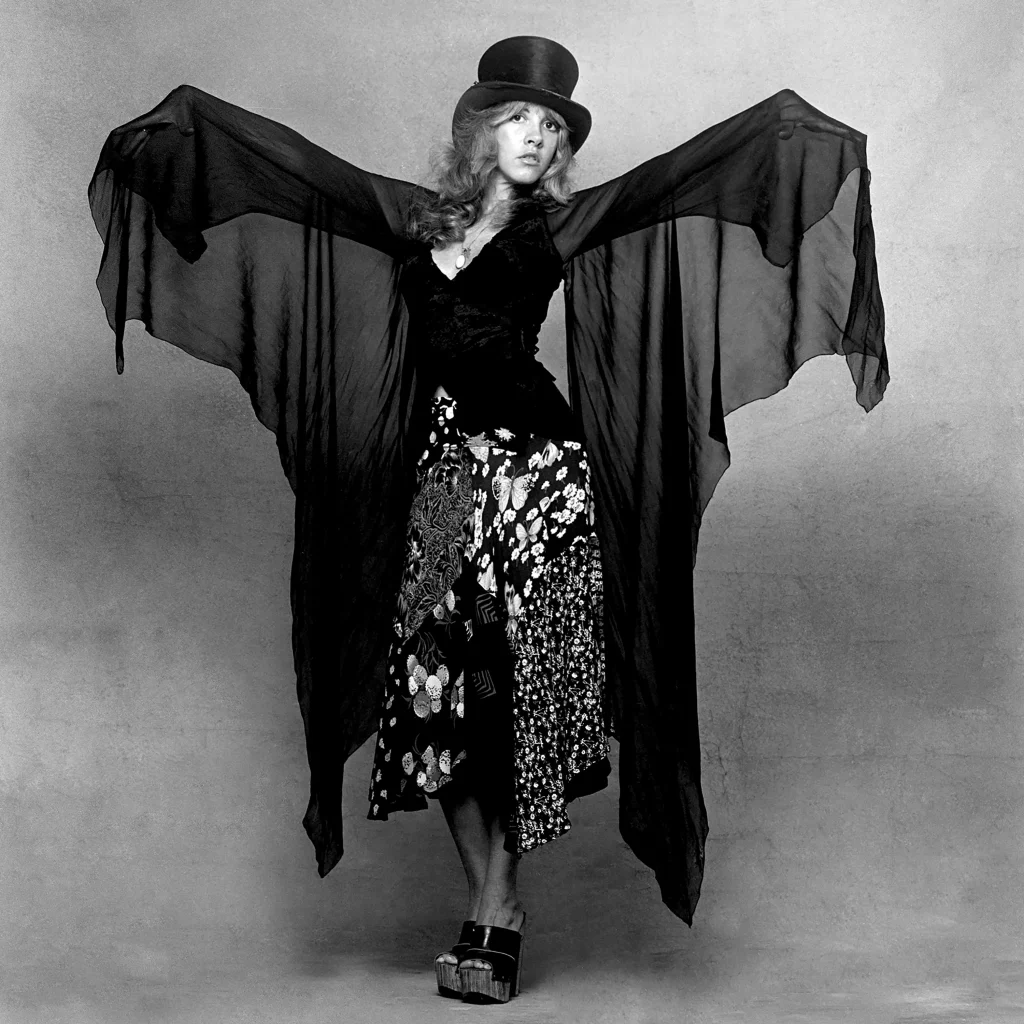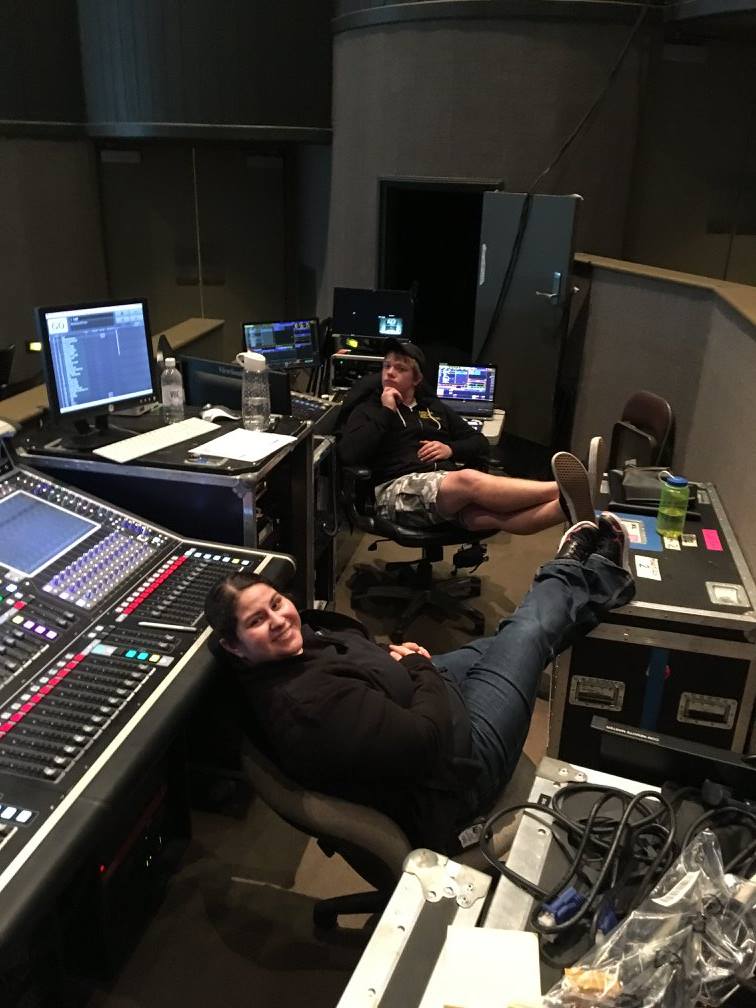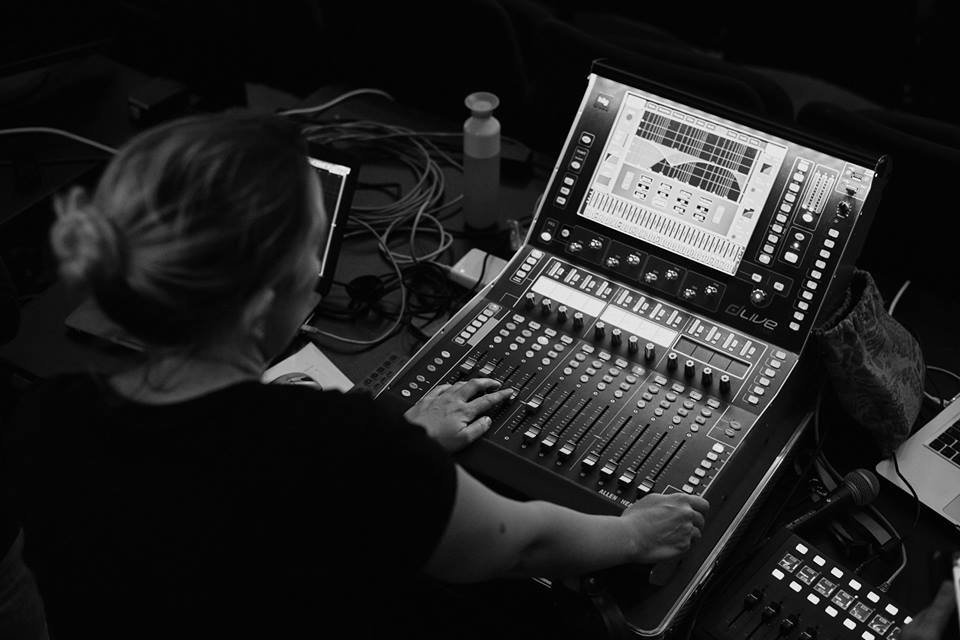Queen of shawls and heartbreak, Stevie Nicks has been creating hits since the 1970s. As a pioneer of women in rock, Nicks is a role model for many modern musicians. Yet Nicks’ journey to be a pioneer of women in rock, is an interesting story of feminine power in the midst of a hyper-masculine music world. Through her lyrics and clothes, Stevie harnessed the power of the feminine to carve a path for herself and build the road for women in music across the globe.
With 40+ years in the music industry, Nicks has dozens of songs penned under her name.. Her fearless proclamations of the dynamic feminine and her mystical garments are exactly what makes her the music mother for many of us. Her proclamations of the strength of a woman are still radical in many cultures, yet they were especially radical when she was penning her early song. In the world of macho rock in the 1970s, Nicks’s fearless proclamation of the woman’s spellbinding power while wearing flowing dresses and draping feminine shawls is a unique and empowering narrative to be written. Yet it is exactly what Nicks’ was writing, most importantly in the song “Rhiannon”.
In one line in the song, Rhiannon says, “ She rules her life like a bird in flight/ and who would be her lover?/ All your life you’ve never seen a woman taken by the wind” (Nicks). These lyrics of feminine power in a rock song were a new idea in music. At this point in time rock was a celebration of hyper-masculine, male sexual power, and a macho mindset. Up to this point few women and be able to enter into the misogynistic world of rock n roll. In much of popular rock, the dominating narrative of the women was either ideal woman/Madonna/Saint, evil or fickle witch, or Sinner/Whore/Victim. If you look at the lyric in Rhiannon as mentioned above, Nicks took this classic rock women witch narrative and turned it into a story of the feminine power of the witch. Pop culture scholar Carol L. Thompson highlights this when she says, “Rhiannon transcends the evil fickle witch stereotype by casting the heroine as irresistible, independent, and in control of her own destiny”. The timing of this song being written as Nicks was experiencing the masculine world of music shows how Nicks understood the patriarchal music industry that she was against. However, Nicks took this understanding of the patriarchal system she was facing, embraced it, and wrote an anthem of how she would take these barriers as a way of gaining power. This narrative of taking power highlights Nicks’ history of her success in embracing femininity as a woman in music while facing rampant misogyny in the rock music industry.
Nicks embracing the power of the feminine did not stop at her lyrics. Following the commercial success of the 1975 album, Fleetwood Mac, Nicks began to work with clothing designer Margi Kent to develop her clothing style for performance. This ultimately led to her wearing long skirts, platform boots, and numerous shawls. This decision to make her image clearly feminine in skirt and heels was a bold decision knowing the misogynistic rock music scene she was entering. By overtly promoting her femininity through her clothing she chose to be strong in her femininity in a male-dominated space. Through this unapologetic clothing expression, she visually expressed women were important and needed in the rock world. It clearly highlighted her difference as a woman and the barriers she was breaking in her success.
Culturally Stevie Nicks is an icon. Stevie’s music still tops the charts, years after the song’s initial release. Her longstanding popularity shows Nicks has inspired many generations with her music. Her legendary status comes from her pioneering actions as one of the famous women in music and in rock n’ roll. Through her lyrics and clothing, she chipped away at the singularly hypermasculine rock culture and carved a space for feminine power to enter rock successfully. Her achievements in these actions have solidified her legacy as a legend in rock n roll.




